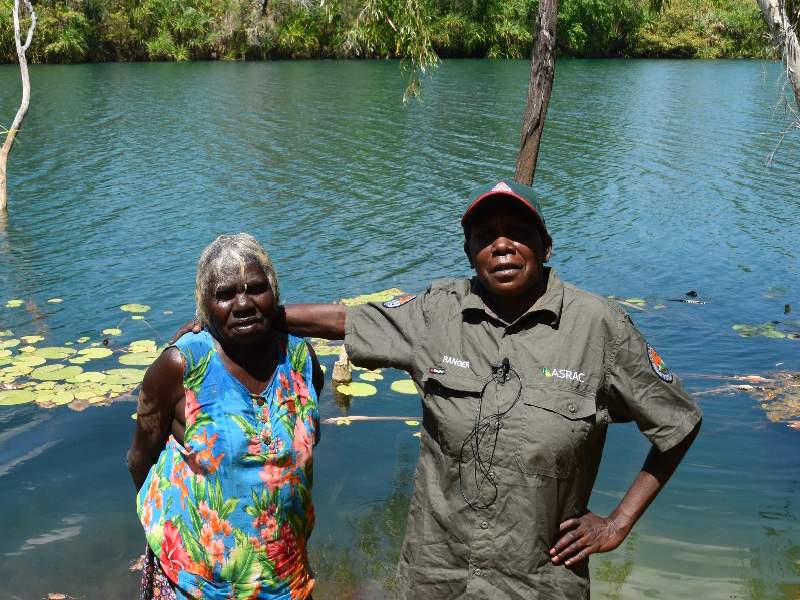
July 1, 2019
Djilpin uniŋ narrakuŋ marlukuŋ ga mar’muŋukuŋ marrap uniŋ. Nyiri narraka ŋaniwarrkuŋ.
Djïḻpin is my country. It is my country because it belonged to my father and my grandfather.
Djïḻpin is the Goyder River, which flows to feed the Arafura Swamp and then the saltwater. If you bring your eyes and see what it looks like, you will feel the country with your mind and soul.
When I go there, I can feel the wind and I know the country is happy I am there. The country holds the song lines and relationships and when I go to Djiḻpin, my ancestors speak to me and give me dreams. Every year when I go there, it changes. When I walk on country, the country gives me more knowledge to understand.
When we go fishing, we say, “Guyu guwang ŋowalayn gupurrui ŋaniwalayn djiniŋ ŋirriwaṯaŋu ga djuŋgayi ga wayirri waṯaŋu”. “Give us fish, we are the Traditional Owners and caretakers right here. Do not hide them from us.”
The women are very busy at Djiḻpin. We dive for djalagu (water yam), dig for buyumar (long yams) and make dilly bags and skirts from the inner bark from the djirrparr (Kurrajong tree). It takes us one week to make a special damper from cycad nuts called djakalangarr, we collect and prepare gunga (Pandanus) leaves for weaving baskets and mats, cook traditionally in a djambal (bush oven) and teach everything to the kids for the future generations.
— by Mali Djarrbal (BHA magazine), Arafura Swamp Women Ranger